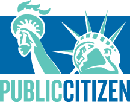 [Cross posted from Public Citizen, Link] In December 2013, Gilead received FDA approval for the first in a new generation of hepatitis C treatments. By all accounts, these treatments represent a cure for patients living with hepatitis C. Since the December release, Gilead’s pricing of its hepatitis C products as well as insurers’ efforts to hold down costs by restricting access to treatment have ignited a vigorous debate in the U.S. about the price of pharmaceuticals and access to medicines.
[Cross posted from Public Citizen, Link] In December 2013, Gilead received FDA approval for the first in a new generation of hepatitis C treatments. By all accounts, these treatments represent a cure for patients living with hepatitis C. Since the December release, Gilead’s pricing of its hepatitis C products as well as insurers’ efforts to hold down costs by restricting access to treatment have ignited a vigorous debate in the U.S. about the price of pharmaceuticals and access to medicines.
In light of the latest announcement of another quarter of astronomical profits for Gilead from its hepatitis C products, I decided to add up previous earnings to see how the company’s $11.2 billion acquisition of Pharmasset, in which Gilead acquired rights to sofosbuvir, has panned out for them so far:
Cumulative global earnings from both Harvoni and Sovaldi totaled a hair under $22 billion as of June 30. It’s safe to say that after just ~19 months from when Sovaldi first entered the US market, over the first week of July they surpassed the landmark of doubling what the company paid for Pharmasset in 2012.
The vast majority of those earnings have come from the U.S.:
Much of this burden has been borne by taxpayers and overextended government agencies. At the VA, the combination of the high prices of these products and a limited budget has led to restrictions in access. The VA spent $379 million on new hepatitis C treatments in FY2014. Thus far in 2015, they’ve spent $700 million, which was intended to last through the entire fiscal year but was completely exhausted as of June.
Of the 180,000 veterans enrolled in the VA who have been diagnosed with hepatitis C, 27,000 have been treated. Counting the estimated 40,000 veterans under the VA’s care with hepatitis C who remain undiagnosed, 193,000 veterans remain to be treated.
At its peak, the VA was newly enrolling ~800 patients per week on HCV treatment. By June 10, that number was down to less than 300. Before the end of the month it fell to zero.
Last week, both houses of Congress approved legislation that will allow the VA to reallocate $500 million from the Veterans Choice Fund toward purchasing hepatitis C treatments. The VA estimates that it will be able to provide treatment to 13,600 veterans with that money, a little over $375 million of which will be spent on Gilead’s Harvoni.
If all goes as planned, by October of this year, the VA will have provided treatment to nearly 41,000 veterans at a cost of approximately $1.58 billion, but approximately 179,000 veterans with hepatitis C will remain to be treated. Assuming their procurement costs remain similar, providing treatment to all of the remaining 179,000 veterans will cost nearly $7 billion. Gilead’s executives will continue to make out like bandits.
However, the VA has the statutory authority under 28 USC 1498 to procure low-cost generics. Gilead’s Sovaldi, for example, is available in India for less than $1000 per course of treatment. Senator Sanders wrote the VA in May urging them to exercise this authority, but thus far they have not complied with the request.
On July 22, Sen. Sanders introduced legislation in committee that would require the VA to procure generics when the price of a medical device is excessive or presents a barrier to care, with compensation to the originating company for making use of its patented invention to be a reasonable and affordable royalty set by the secretary. The Senate Veterans Affairs Committee discussed Sanders’ proposal for 15 minutes, with many senators expressing curiosity or interest. Ultimately Sanders withdrew the proposal after Chairman Isakson and Ranking Member Blumenthal agreed to explore the issue in more depth at a future hearing.
By procuring generics, either through section 1498 authority or the enactment of Sen. Sanders’ legislation, the VA would accrue billions in savings which could be spent on hiring more doctors and providing other much needed services to veterans, while at the same time allowing the VA to accelerate veterans’ access to HCV treatment.
By any metric Gilead’s earnings from its line of hepatitis C treatments has been a windfall. Rather than continuing to pad the pockets of Gilead’s elite at the cost of other VA programs, the VA should move forward with 1498 and policymakers should give Sen. Sanders legislation serious consideration.






